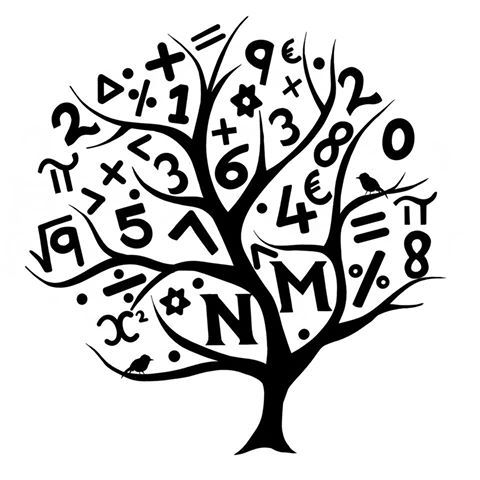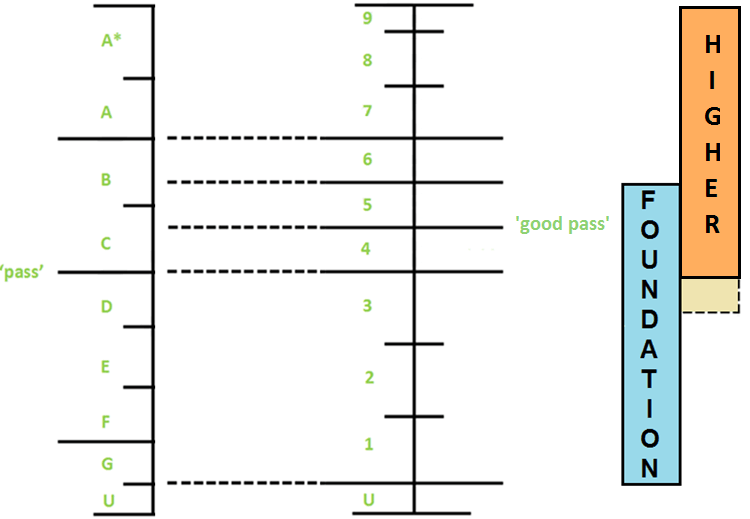GCSE mathematics: past exam papers
England has three examination boards, these are AQA, Edexcel & OCR. Below are links to GCSE examination papers from pass examinations. Ensure you practice past papers from the correct exam board.
| Autumn Retake 2025 | |
|---|---|
| Paper 1 | Wednesday 5th November |
| Paper 2 | Friday 7th November |
| Paper 3 | Monday 10th November |
| Summer exams 2026 | |
|---|---|
| Paper 1 | Thursday 14th May |
| Paper 2 | Wednesday 3rd June |
| Paper 3 | Wednesday 10th June |
Each year, there are two opportunities for a student to sit their maths GCSE. The first is in May/June. The second is the November resit. A student will complete their first attempt of the maths GCSE examinations, when they are leaving school, in the summer term of school Year 11. A grade level of 4 or higher is deemed a pass grade. On completing school education, students transisition to either college or sixth-form education. During their time at sixth form or college, those students with a maths grade of 1, 2 or 3 are expected to resit their maths GCSE until they do achive a pass grade. They will have a maximum of two attempts in Year 12 and then two attempts in Year 13.
Are you practicing the correct past papers?
Do you know your UK exam board - AQA, Edexcel or OCR?
England's three GCSE
examination boards are
AQA, Edexcel & OCR. The maths department at your college or school pick one of these three
exam boards. So ask your maths teacher which exam board they have choosen. Each board offers the same maths
GCSE qualification and all three boards test the same mathematical content - decided by the Department of Education (DofE). However, each board has its own unique style of test questions. So, when comparing the papers from two different exam boards, the papers may "feel" different.
Do you know your tier of entry - foundation or higher?
Their are two tiers of entry, foundation and higher. Each tier has its own unique syllabus but the two teirs also have topics incommon. So typically, there is an overlap where the later end of any foundation paper contains the same questions as the start of its corresponding higher paper. The foundation tier is for those students targetting a single grade between 1 to 5. While the higher tier is for students aiming for a single grade between 4 to 9.
Is it okay to practice exam papers from a different exam board?
Yes, it's okay to practice exam papers from a different exam board, but first start by practicing past papers from the exam board that your school/college selected for you to do. This will enable you to become familiar with their unique questioning style of this exam board. Only then you have completed these papers, would I recommend practice from the other two exam boards.
Practicing past papers should rank highly on any students list of revision tools. Importantly, don't just "move on" from a paper once you have completed it. Ensure you mark your answers and seek help and support to understand and learn more about the topics you are getting wrong.
- Access and download a past paper.
- Mark your answers using the mark schemes provide.
- Use grade boundaries to obtain a grade to see how well you are progressing.
How do the old (A*-G) GCSE grades compare to the new (9-1) grades?
The new GCSE 9-1 curriculum was first taught in classrooms to Year 10 students in September 2015, with these students sitting the examination in the summer of June 2017. As this new syllabus contained increased content, examinations are now tested over three separate exam papers, rather than the traditional two papers, with students required to remember more formulas than previously. Prior to 2017, exam grades of G-A* were awarded, with grade C being the bench mark pass grade. Now exam grades of 9-1 are awarded with grade 4 considered a pass and grace 5 considered a good pass. The new scales provides better differentiation between the individual achievements of students at the top end of the scale.
What are the syllabus changes in this new maths GCSE?
New topics introduced to both the foundation and higher tiers:
- Fibonacci, geometric and quadratic sequences.
- Gradients as rates of change.
- Know values for 30, 45, 60, 90 for sin & cos. Know value 30, 45, 60 for tan.
- Work with % greater than 100.
New topics on the higher only:
- Nth term of quadratic sequence.
- The equation of a tangent to a circle.
- Deduce turning point of a quadratic by completing the square.
- Iteration.
- Composite functions.
- Conditional probability from Venn Diagrams.
- Geometric progressions e.g. involving surds.
NOTE: these topics are no longer tested on the new (9-1) syllabus
- Trial & error, questionnaires.




